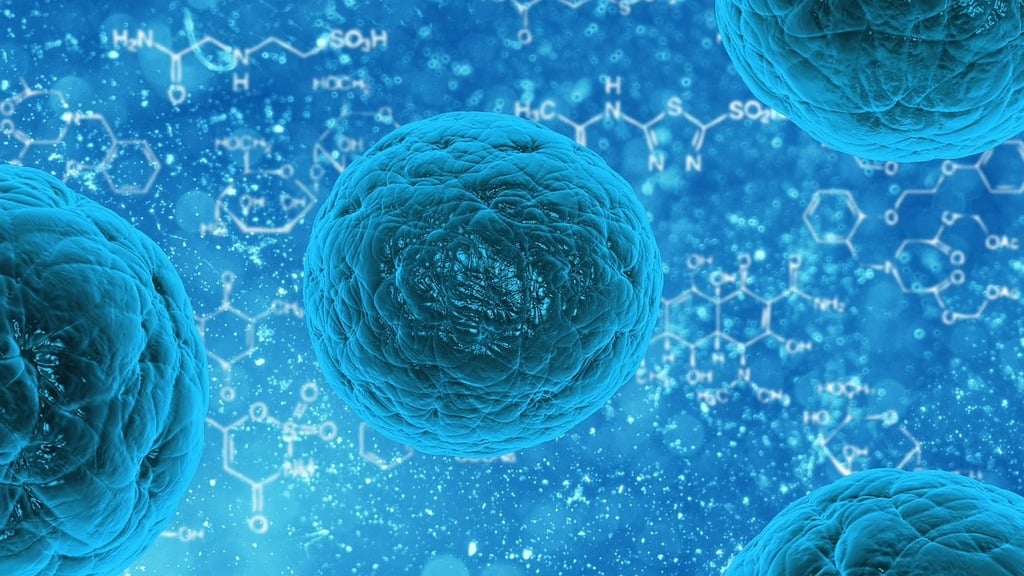Introduction
Stem cells have revolutionized medical science by offering groundbreaking potential in regenerative medicine, disease treatment, and scientific research. These cells possess the unique ability to develop into different cell types, making them crucial for repairing damaged tissues and treating chronic conditions. While many people are aware of their basic function, recent advancements and unexplored insights into stem cell have opened new doors in medicine that most are still unfamiliar with.
This article delves into the fundamentals of stem cell, their types, recent research findings, innovative applications, and little-known facts that highlight their future potential.
What Are Stem Cells?
They are undifferentiated cells capable of self-renewal and differentiation into specialized cells such as muscle, nerve, and blood cells. Unlike regular body cells, which have fixed roles, stem cells can transform into various types based on the body’s needs.
Types of Stem Cell:
- Embryonic Stem Cell (ESCs): Derived from early-stage embryos, these cells have unlimited differentiation potential.
- Adult (Somatic) Stem Cell: Found in tissues like bone marrow, skin, and the brain, these cells primarily repair damaged tissues.
- Induced Pluripotent Stem Cell (iPSCs): Created by reprogramming adult cells back into a stem cell-like state, eliminating the ethical concerns associated with embryonic stem cells.
- Mesenchymal Stem Cell (MSCs): Found in bone marrow, fat tissue, and umbilical cord blood, MSCs are widely used in regenerative medicine.
Recent Research and Breakthroughs in Stem Cell Therapy
Scientific advancements in stem cell research have led to promising treatments for various diseases:
1. Stem Cells for Neurological Disorders
Recent studies suggest that stem cells may play a crucial role in treating neurodegenerative diseases like Parkinson’s, Alzheimer’s, and multiple sclerosis (MS). A 2023 study published in Nature Medicine demonstrated that transplanted neural stem cell helped regenerate damaged neurons, improving motor function in Parkinson’s patients.
2. Stem Cells in Heart Disease Treatment
Heart disease remains a leading cause of death worldwide, but regenerative medicine offers new hope. A 2022 clinical trial at Cedars-Sinai Medical Center found that stem cell-derived heart muscle patches significantly improved cardiac function in patients with heart failure, reducing symptoms and hospitalization rates.
3. Stem Cells in Cancer Treatment
Innovative research in cancer immunotherapy has shown that genetically modified stem cell can target and eliminate cancer cells. Scientists at Harvard University have engineered hematopoietic stem cells that produce T-cells capable of attacking leukemia and solid tumors.
4. Bioengineered Stem Cells for Organ Regeneration
The concept of growing fully functional organs in the lab is becoming a reality. Researchers at Wake Forest Institute for Regenerative Medicine have successfully bioengineered miniature kidneys and liver tissues using stem cell, paving the way for potential transplantable organs.
Lesser-Known Insights About Stem Cells
Despite their well-known applications, there are several surprising facts about stem cell that most people are unaware of:
1. Stem Cell and Aging Reversal
Emerging research suggests that stem cell may slow down or even reverse aging. Studies conducted at Stanford University showed that blood transfusions from young individuals into older mice significantly improved cognitive function and physical endurance, suggesting that rejuvenating stem cells might hold the key to longevity.
2. Stem Cell and Personalized Medicine
With the advent of iPSC technology, researchers can now grow a patient’s specific stem cell and test drug responses on them before actual treatment, allowing for customized, risk-free therapies.
3. Stem Cells in Space Research
NASA has been studying the effects of microgravity on stem cell aboard the International Space Station (ISS). The lack of gravity accelerates cell aging, helping scientists understand how a stem cell function under extreme conditions, which could lead to groundbreaking medical treatments on Earth.
4. The Potential of Stem Cell in Diabetes Treatment
Recent clinical trials have shown that stem cell can regenerate insulin-producing pancreatic cells in Type 1 diabetes patients. In 2022, Vertex Pharmaceuticals successfully treated a diabetic patient with laboratory-grown beta cells, reducing his need for insulin injections.
Ethical Considerations and Challenges
Despite their immense potential, stem cell research faces ethical and technical challenges:
- Embryonic Stem Cell Controversy: The use of human embryos raises moral and legal concerns, leading scientists to develop alternative methods such as iPSCs.
- Immune Rejection Risks: Stem cell transplants sometimes trigger immune responses, necessitating immunosuppressive therapy.
- High Costs and Accessibility: Advanced stem cell therapies remain expensive, limiting their availability to the general population.
The Future of Stem Cell in Medicine
As research continues, the future of stem cell therapy looks incredibly promising. AI-powered stem cell analysis, 3D bioprinting of tissues, and advancements in gene editing (CRISPR technology) are expected to revolutionize regenerative medicine.
Furthermore, global collaborations such as the Human Cell Atlas Project are mapping all human cells, enhancing our understanding of stem cell functions and improving targeted therapies for numerous diseases.
Conclusion
Stem cell research is unlocking new possibilities in medicine, offering hope for previously incurable diseases and paving the way for revolutionary treatments. From regenerating damaged organs to reversing aging, the potential of these remarkable cells is vast. While challenges remain, continued advancements will undoubtedly transform the landscape of healthcare in the coming decades.
For those interested in cutting-edge regenerative medicine, keeping an eye on stem cell research developments is essential, as it holds the key to a healthier future for humanity.
Read About : The 19 Best Cancer-Fighting Foods You Need in Your Kitchen!
Visit Us At : https://g.co/kgs/rTqAjgt





